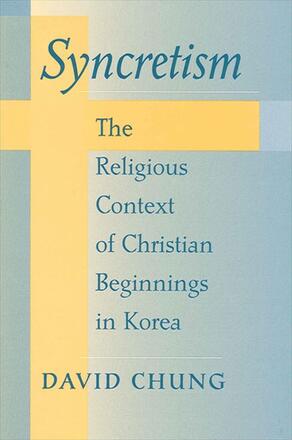
Syncretism
The Religious Context of Christian Beginnings in Korea
Alternative formats available from:
Argues that a syncretic worldview encouraged the remarkable growth of Christianity in Korea.
Description
This book explains the explosive growth of Christianity since its introduction into Korea in the eighteenth century. In no other Asian country has Christianity taken root so strongly.
Author David Chung argues that it was the syncretic tendency of Korean religious culture that provided the context for the successful acceptance of Christianity. Working from the perspective of comparative religions, he explores how Korean society accommodated and assimilated religions of foreign origin, such as Confucianism, Taoism, Buddhism, and Christianity through crude equation and subtle identification of these religions with Korean indigenous beliefs. Fundamentally shamanistic, Korean society received and grafted these religions onto its own and made a remarkable tapestry of beliefs, rites, and values into a comprehensive pattern. Syncretism finds this "religious tapestry" or internal chemistry working between Korean and Christian worldviews.
David Chung is former President of Konkuk University and Hanshin University, Korea, and former Professor of Religious Studies, Carleton University, Canada.
Reviews
"Syncretism is a most important phenomenon in understanding Korean Christianity even today. This book gives us an eye-opening experience." — Chan-Hie Kim, Claremont School of Theology
"Many scholars are asking why Christian churches are so successful in Korea in comparison to other neighboring Asian countries. A significant answer is provided in this book of Syncretism." — Wi Jo Kang, Wilhelm Loehe Professor of World Religions and Mission at Wartburg Theological Seminary, Emeritus